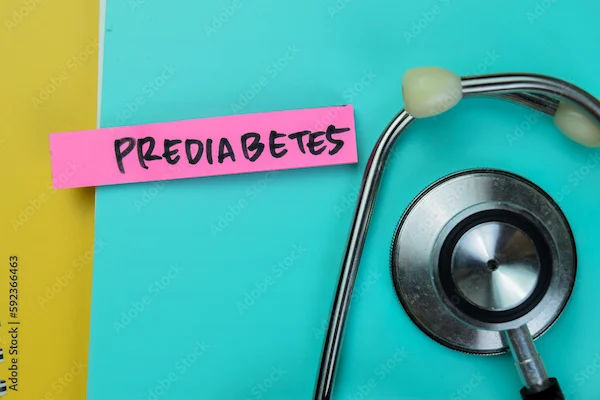Foetal Risks in Gestational Diabetes: Impact, Symptoms, & More
Gestational diabetes has become an increasing concern for the female population. Explore the various aspects of gestational diabetes, including impact, symptoms, diagnosis, delivery considerations and more.

Written by
Last updated on 3rd Jul, 2025
Gestational diabetes is a subtype of diabetes where the blood glucose level rises above the normal level during pregnancy. It occurs when the placental hormones block the ability of the body to produce or utilise insulin. This condition can eventually lead to certain complications during pregnancy, creating an impact on foetal health.
Thus, for pregnant women, it is crucial to know the impact of gestational diabetes on foetal health, symptoms, management techniques and more.
Impact of Gestational Diabetes on Foetal Health
The foetal health is heavily impacted if the mother develops gestational diabetes:
Macrosomia: Baby grows excessively big due to abnormally high glucose levels.
Hypoglycemia: The baby may experience hypoglycemia as the pancreas secretes high insulin levels.
Respiratory Distress Syndrome: When born prematurely, the baby might face respiratory distress owing to the immature lungs.
Shoulder Dystocia: The large size of the baby makes it difficult to deliver its shoulders during birth.
Congenital Anomalies: Increased chances of being born with congenital anomalies if the gestational diabetes is untreated.
The newborn might also develop type 2 diabetes in the coming years or might face severe health issues later in life.
Prevalence and Risk Factors of Foetal Risks in Gestational Diabetes
The prevalence of GDM or gestational diabetes mellitus ranges from 3% to 35%, depending upon the socio-economic status, dietary habits and living conditions. However, there are certain risk factors for developing gestational diabetes, and they are:
Family History: Having a first-generation relative with diabetes
Prior History of GDM: Developing GDM in the previous pregnancy
Hypertension: Having blood pressure beyond the normal range
Preeclampsia: Suffering from pregnancy-induced hypertension or preeclampsia
Advanced Age: 35 years or older
PCOS: Having a previous history of Polycystic Ovary Syndrome (PCOS)
Ethnicity: Belonging to Latino, Native American, Asian American, and Pacific Islander
Excessive Weight Gain and Foetal Growth: Too much weight gain during pregnancy and having a large baby
Obesity: Having a Body Mass Index (BMI) of 30 or higher
Symptoms and Diagnosis of Foetal Risks in Gestational Diabetes
Gestational diabetes can affect the mother and the baby significantly. Some of the symptoms seen in diabetic mothers are:
Fatigue
Weight loss without any reason
Blurred vision
Genital thrush
Frequent urination
Increased thirst
Dry mouth
The foetus should also be monitored for any potential complications:
Foetal heart rate is an essential parameter to assess the foetal condition.
The mother should be asked about foetal movement, and she should inform if the movement has decreased.
An ultrasound might also be recommended by the doctor to analyse the weight of the foetus along with congenital malformations, if any.
Consult Experts for Your Symptoms
Management of Gestational Diabetes
There are two key factors in the management of gestational diabetes:
Diet: Sugary foods and drinks should be consumed in limited quantities, along with the inclusion of whole grains in the diet. There should be a balance of vegetables, fruits and lean protein in the meal.
Exercise: Do not lead a sedentary lifestyle, and engage in exercise for at least 30 minutes a day. Indulge in light activities such as swimming, cycling, housework or gardening.
Along with this, the medications should be taken on time to maintain normal blood sugar levels.
Delivery Considerations for Mothers with Gestational Diabetes
Mothers with gestational diabetes might need to deliver the babies before or after the recommended time, depending on the health of the mother as well as the baby. The factors affecting the delivery are:
Foetal Growth: If the growth of the baby is normal and as per expectations, the delivery can be conducted before 41 weeks of gestation.
Foetal Lung Maturity: If the baby is born premature, he or she might need medications to promote lung maturity.
Preeclampsia: High blood pressure along with gestational diabetes might turn out to be very harmful to the delivering mother.
Blood Sugar Control: Increased blood sugar induces perinatal complications. Hence, the blood sugar should be in control during delivery.
Apart from this:
Mother might need glucose and insulin through IV drip.
Blood glucose should be measured hourly.
The baby should be fed as soon as it is born, and the blood sugar levels of the mother should be checked.
Postpartum Implications of Gestational Diabetes
Gestational diabetes can trigger certain other aspects of a mother’s life which should be monitored carefully:
Increased Risk of Type 2 Diabetes: Once a mother develops gestational diabetes, she is always at risk of developing type 2 diabetes, which requires medical intervention and lifestyle modifications.
Lifestyle Changes: To drive away the risk of developing type 2 diabetes, the mother should maintain a healthy weight, engage in regular exercise and have a balanced diet.
Psychological Impact: Studies reveal that gestational diabetes makes a mother more prone towards developing postpartum depression. Hence, the mother should be provided with mental support.
Postpartum Glucose Tolerance Testing: Soon after delivery, the mother should undergo a glucose tolerance test to rule out any glucose intolerance.
Monitor Future Pregnancies: Once a mother is diagnosed with gestational diabetes, she should be closely monitored in subsequent pregnancies and screened for gestational diabetes as soon as possible.
However, the baby also suffers from some complications, and they are:
Macrosomia: Owing to the excessive glucose exposure inside the uterus, the babies grow in size, which may lead to delivery complications.
Birth Injuries: Large babies are difficult to deliver and, hence, have a high risk of getting injured during the birthing process, including nerve damage to the arm or shoulder.
Hypoglycemia: Babies born to diabetic mothers might suffer from hypoglycemia shortly after being born as their insulin supply is cut off. Hence, they require supplemental feeding or glucose solutions.
Long-Term Concerns: Infants of diabetic mothers are likely to be obese and develop type 2 diabetes as they grow up.
Prevention and Early Detection of Foetal Risks in Gestational Diabetes
The key strategies to prevent and early detect the foetal risk in Gestational Diabetes are:
Lifestyle Modification: Maintaining a healthy diet along with an active lifestyle will help to prevent gestational diabetes.
Early Gestational Diabetes Screening: A glucose tolerance test should be performed within 24 to 28 weeks for better management of the condition.
Foetal Monitoring: Proper ultrasound and monitoring of foetal movement should be conducted along with non-stress tests to ensure foetal well-being.
Blood Sugar Management During Pregnancy: Blood sugar levels should be frequently measured, and insulin therapy should be provided if required.
Conclusion
Gestational diabetes needs to be managed for the well-being of the child as well as the mother. Infants of diabetic mothers stay at risk for various diseases, such as type 2 diabetes, which can prevent them from having a normal life. Hence, staying aware of the symptoms, early detection and adopting preventive measures will help the mother and the child to lead a healthy life.
Consult Top Diabetologists
Consult Experts for Your Symptoms

Dr. Suraja Nutulapati
General Physician/ Internal Medicine Specialist
10 Years • MBBS, MD (Internal Medicine)
Hyderabad
Apollo 24|7 Clinic, Hyderabad
(850+ Patients)

Dr. Lakshmi Sanjitha Kakani
General Physician/ Internal Medicine Specialist
6 Years • MBBS, MD (General Medicine)
Visakhapatnam
Apollo 24|7 Clinic - Andhra Pradesh, Visakhapatnam

Dr. Liritha C
General Physician/ Internal Medicine Specialist
5 Years • MBBS, MD (GENERAL MEDICINE)
Hyderabad
Apollo 24|7 Clinic, Hyderabad

Dr. Usha Gaddams Clinic
General Physician/ Internal Medicine Specialist
9 Years • MBBS, DNB (Internal Medicine), For Physical consult(6302986818)
Hyderabad
DR. USHA GADDAMS CLINIC, Hyderabad

Dr. Raveendran Sr
Diabetologist
14 Years • MBBS,MD,D.DIAB,FSM
Chennai
S R Clinic, Chennai
Consult Top Diabetologists

Dr. Suraja Nutulapati
General Physician/ Internal Medicine Specialist
10 Years • MBBS, MD (Internal Medicine)
Hyderabad
Apollo 24|7 Clinic, Hyderabad
(850+ Patients)

Dr. Lakshmi Sanjitha Kakani
General Physician/ Internal Medicine Specialist
6 Years • MBBS, MD (General Medicine)
Visakhapatnam
Apollo 24|7 Clinic - Andhra Pradesh, Visakhapatnam

Dr. Liritha C
General Physician/ Internal Medicine Specialist
5 Years • MBBS, MD (GENERAL MEDICINE)
Hyderabad
Apollo 24|7 Clinic, Hyderabad

Dr. Usha Gaddams Clinic
General Physician/ Internal Medicine Specialist
9 Years • MBBS, DNB (Internal Medicine), For Physical consult(6302986818)
Hyderabad
DR. USHA GADDAMS CLINIC, Hyderabad

Dr. Raveendran Sr
Diabetologist
14 Years • MBBS,MD,D.DIAB,FSM
Chennai
S R Clinic, Chennai


